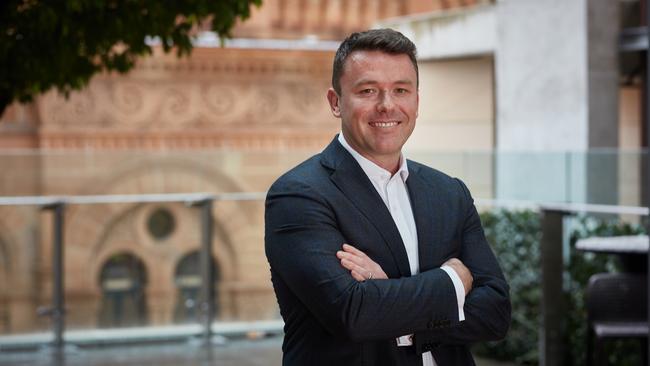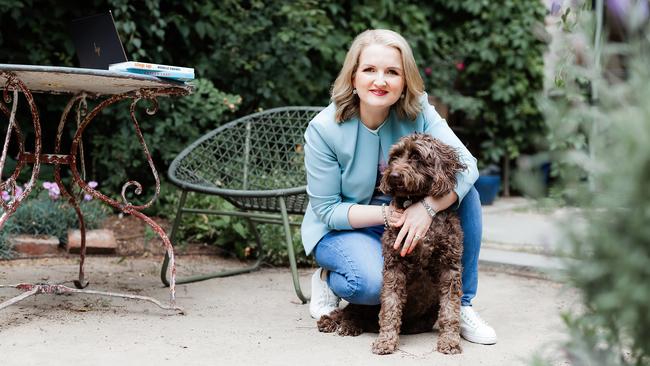Workplace experts say you should not ask for more than 5 per cent if you want to get a pay rise
Workplace experts warn being greedy won’t work anymore when asking for a pay rise. See the magic figure and more tips.
SmartDaily
Don't miss out on the headlines from SmartDaily. Followed categories will be added to My News.
Aussie workers are experiencing mixed success when it comes to requesting more pay, as employers wrestle with ongoing talent shortages and their own increased operating costs.
Research from recruiter Robert Half shows two in five workers applying for a new role have managed to secure a higher salary than what was originally offered.
But the heady days of getting pay increases of up to 40 per cent are long gone, says Robert Half director Nicole Gorton, with employers now only likely to agree to a far more modest rise of no more than 5 per cent.
Asking for more than that may see workers knocked back on roles, with the research revealing 14 per cent of employers have withdrawn a job offer during the past year because of the candidate’s high salary assumptions.
Similarly, almost a quarter of candidates have walked away from a role because the pay did not meet their expectations.
The research also shows three in five bosses have received an “unrealistic” salary request which was, on average, 16 per cent more than what was originally offered.
BARGAINING POWER
Workers have aggressively chased pay rises during the past couple of years, emboldened by the worsening skills crisis and, more recently, struggling to keep up with the cost of living.
But Gorton says businesses have become increasingly concerned about the economy and are not afraid to put their foot down and risk losing talent in the negotiation process.
“Where people are still able get more salary, they were probably underpaid to begin with or they have those really in-demand skills,” she says.

“It really is role dependent and industry dependent but, if you are working in those really high demand skills areas, then you are still in a position to demand a higher salary.”
Gorton says tech workers, particularly those involved in app development and cyber security, are most likely to have their pay increased but warns the extra salary will not match inflation.
WANT VERSUS REALITY
A year ago, Robert Walters NSW managing director Andrew Hanson advised workers who were offered a 5 per cent pay rise to look for a better deal elsewhere, but concedes things have significantly changed.
“It is becoming more difficult for people to negotiate pay rises,” he warns.
“And there’s a difference between what people want and what they are capable of securing.”
Those who received small pay increases last year, in the vicinity of 3 per cent, have a stronger case for requesting a further salary review this year, Hanson says, adding those who “make a difference to the bottom line” may also receive a more favourable audience.

But with companies also facing increased costs, he wants workers to be mindful that big salary hikes now may come at the expense of large-scale redundancies later.
“I definitely don’t want to sound doom and gloom but people need to be a little bit prudent,” he says.
DON’T ASK, DON’T GET
Workplace expert Michelle Gibbings says workers should never be shy about asking for a pay rise, but they do need to be realistic and check their worth through recruiter salary surveys and the Fair Work Commission website.
“Many people get nervous about asking for a pay rise but if you don’t ask, you don’t get,” says Gibbings.
“Don’t go in too high (with a pay request) but don’t go really low either. If you start low, you will never go up so you need to start higher so that, during negotiations, you still have somewhere to go (and can compromise).”
She says while it is possible to negotiate a pay increase with an existing employer, workers stand a stronger chance of winning more money by switching to a new role.

TIPS TO GET MORE CASH
1. Consider past negotiations:
If you have recently secured a big boost to your salary, your employer will be less likely to give you another, but if you haven’t had much of an increase in the past year, your argument becomes stronger.
2. Know the market and your value:
The best way to know what you should be earning is to find out what others in a similar role are getting paid.
3. Have all the facts and clear examples:
Negotiations are based on considerations of cost and benefit, so the more you can demonstrate the value you bring to the role and your ability to deliver results, the better your chance of success.
4. Make a clear argument:
If you can’t win a pay rise with a clear, compelling argument that is backed by evidence, then maybe it’s time to start looking elsewhere.
5. Consider non-monetary incentives:
There might be reasons why your employer cannot increase your pay but that doesn’t mean they are not willing to provide something extra to reward your effort. Additional days off, personal project capacity and extra professional development prospects can all supplement your existing salary.
Source: Robert Walters
Originally published as Workplace experts say you should not ask for more than 5 per cent if you want to get a pay rise




